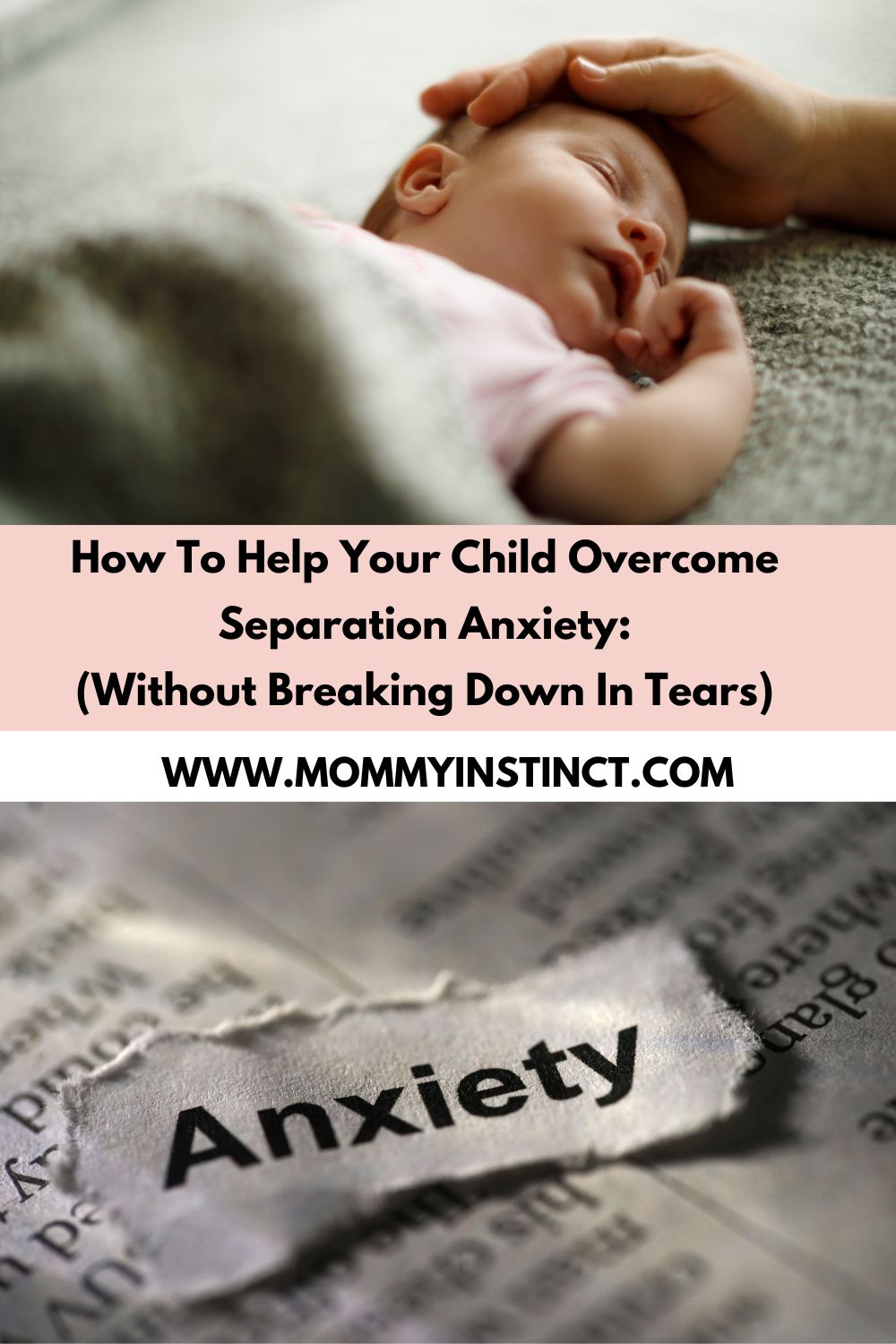It’s every new parent’s worst nightmare—the moment your baby wakes up from an otherwise deep sleep and starts crying inconsolably. It’s called separation anxiety, and it’s an extremely common part of infant development.
Sleep training separation anxiety is a common concern for parents and their babies. It is a normal developmental stage that can be difficult to understand. As the parent, you may wonder if it is separation anxiety at night or if it will always be present throughout your child's life.
If you and your child are experiencing this stage and wondering how to deal with it, then this article will break down every concern for you.
Understand The Term “Separation Anxiety”

Separation anxiety is a common term used to describe the emotional difficulties that many children experience when separated from their parents. It's not a disorder but just an emotional response that can cause distress and often lead to trouble at school or home.
It’s important to remember that separation anxiety is not a sign of something being wrong with your child. Growing up and learning how to be independent is part of it. It's a normal phase of development for all children.
Understand The Root Of “Separation Anxiety”
There are many reasons a child may be afraid of being separated from their parents or other loved ones. The following are some of the main reasons:
When Do Babies Feel Separation Anxiety?

Babies typically develop separation anxiety in the first three months of life. It usually peaks at around 6 months of age and can last for several months or even years after that.
This is when they become more aware of themselves and their surroundings. They understand they are separate from their parents, and even though they're still attached at a physical level, they're also becoming more independent and mobile.
The babies will show signs of separation anxiety around this time. They may cry inconsolably if they're removed from the comfort of their mother's arms. This is because babies need their mother's comforting presence to feel safe.
Can You Sleep Train During Separation Anxiety?
"Sleep training" is a controversial subject among parents. Some experts say that it's never appropriate to separate babies from their parents when they cry, while others are staunch defenders of sleep training methods.
The debate has made it hard for many parents to know how to handle sleep training separation anxiety in their children. But the question is still on the table: can you sleep train during separation anxiety? I would say, yes, you can.
While kids with separation anxiety may have a hard time sleeping at night, parents often feel guilty about leaving their child in the crib for even a few hours. This makes it even harder to leave when they're finally ready to go to bed.
To avoid this cycle, it's important to start by letting your child adjust to being alone while you're gone. Try these tips:
The most important benefit of sleep train during separation anxiety is that it will help your child's brain adapt to new patterns of sleep and wakefulness. This will help them get used to being alone and deal when away from you without becoming overwhelmed.
How Do You Deal With Separation Anxiety While Sleep Training?

If you're a parent who's trying to sleep train your child and you're having trouble with sleep training separation anxiety, don't worry. It's normal for babies to be anxious about leaving their parents — and that feeling can intensify as they get older.
I know how you feel. When I started to sleep train my son, I was so desperate to get him to stop crying that I was ready to resort to any means necessary. I'm here to tell you it's unnecessary.
When you sleep train, it's common for your baby to cry and fuss in the middle of the night. This is normal, but if it lasts longer than an hour or two, it could be a sign that your child is having trouble separating from you.
However, if you're struggling with sleep training separation anxiety and the thought of sleep train is making you break down in tears, here are some tips on how to help your child overcome separation anxiety without breaking down in tears:
How Do I Break My Baby's Separation Anxiety At Night?
You can't expect your baby to learn that it's safe to fall asleep without you. But you can help her develop the skills she needs to get through the night without waking up. There are a few ways to help your baby overcome sleep training separation anxiety:
Give her time to adjust
You might feel you're doing everything right, but all may confuse or overwhelm your baby with the recent changes in her life. Give her time to adjust before getting into bed with her.
Talk about it
Use a schedule or routine as much as possible
When you leave them overnight, so they can predict things like bedtime and naptime, they can also know what's coming next!
How Long Does Separation Anxiety Sleep Regression Last?

There is no definitive answer to this question. Sleep regression is a temporary condition and will gradually improve over time as the child learns to deal with separation.
The good news is that sleep training does not have to last a year. It depends on the child and the nature of their anxiety.
The bad news is that it may take longer than you expect to find a balance between helping your child learn to go to sleep without crying and not breaking down in tears.
The time that separation anxiety sleep regression lasts depends on several factors:
If your child has experienced severe sleep train — i.e., leaving him for a long period while using comfort measures like soothing voices and physical proximity — then it will take longer for them to overcome separation anxiety sleep regression

Conclusion
Sleep training separation anxiety is challenging for parents, but with a little extra patience and the right approach, you can help your child overcome this difficult stage and get back to peaceful nights.
Above all, don't let anxiety get the best of you. The older your child gets, the more likely they are to have separation anxiety. When a child is tired and cries after being put to bed, it can be an actual struggle for both you and your child.
However, there is some good news—this stage will pass. It doesn't matter how often your child has difficulty falling asleep; whether it's every night or once in a while, this stage is normal, and things should start getting easier than they become accustomed to the new schedule.
Remember that kids can be very resilient, and they naturally adapt to change better than many adults. So worry not; in time, they will outgrow this stage. Patience and consistency are key, and in no time you'll be well on your way to sleeping through the night again.

